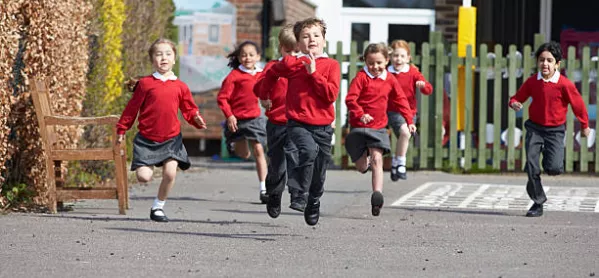Primary schools ‘kept guessing’ over £320m PE fund

Schools minister Nick Gibb has caused anger among headteachers after being “non-committal” in his answer to a parliamentary question asking whether a £320 million grant supporting PE in primary schools would continue next year.
The Primary PE and Sports Premium grant, worth an average of around £18,000 per school, helps schools to engage pupils in regular physical activity, including swimming lessons and running the “The Daily Mile”, while increasing the confidence and skills of staff in teaching PE and sport.
However, when asked by Labour MP Barry Gardiner whether the grant would be extended “to enable children who have been in lockdown to catch up with the level of physical skills attainment appropriate to their age”, Mr Gibb could only say that the DfE was “considering arrangements” for the grant and would “confirm the position as soon as possible.”
Sport and PE: Why bringing sport back to our school was so important
Wellbeing: Why exercise is crucial to learning
Research: Most parents value pupil wellbeing above exam results
Julia Harnden, funding specialist at the Association of School and College Leaders (ASCL), said schools needed clarity on the funding for next year.
Primary school PE funding ‘more important than ever before’
“After a year of educational disruption caused by the pandemic, in which PE and sport in primary schools has been decimated, the very least the government could do is provide teachers with the certainty that funding they have become accustomed to receiving is in place,” she said.
“This money is more important than ever before to ensure primary pupils benefit both physically and mentally from regular exercise.
“There has never been a promise that this money would always be made available but the education minister’s non-committal response to an apparently simple question is badly timed and badly judged and will keep primary schools guessing at a critical point in their planning for the next school year.
“We urge the government to make the funding situation crystal clear so that leaders can put firm plans in place to ensure the physical and mental health of our youngest pupils is not compromised.”
The ring-fenced grant, for English primary schools, which was doubled in 2017, also helps schools to pay for a broader range of sports and activities. as well as increased participation in competitive sport. It is also being used to support SEND pupils to “build physical literacy” in things like tying their own shoelaces and holding a knife and fork.
Last year education secretary Gavin Williamson extended the scheme for another year, citing the time outdoors that children had missed due to the Covid pandemic, and saying that keeping active “benefits not just our physical health but also our ability to pay attention, our mood and our mental health, too”.
A spokesperson for the Youth Sport Trust said today that the cash had “supported thousands of primary schools to deliver high-quality physical education and develop teachers’ confidence beyond their initial teacher training since it was launched”.
The spokesperson added: “Where it has been invested well, it has helped schools to make great strides in positioning PE and sport at the core of their work to improve pupils’ health, wellbeing and ability to learn.”
A Department for Education spokesperson said: “We launched our ambitious School Sport and Activity Action Plan to support children’s physical activity, and we are investing £10.1 million to help open existing school sports and swimming facilities as national restrictions ease.
“We have updated our guidance for schools to clarify that any unspent PE and sport premium from the 2019-20 academic year can be carried forward for use until the end of 2020-21 and we will provide further details for the next academic year soon.”
You need a Tes subscription to read this article
Subscribe now to read this article and get other subscriber-only content:
- Unlimited access to all Tes magazine content
- Exclusive subscriber-only stories
- Award-winning email newsletters
Already a subscriber? Log in
You need a subscription to read this article
Subscribe now to read this article and get other subscriber-only content, including:
- Unlimited access to all Tes magazine content
- Exclusive subscriber-only stories
- Award-winning email newsletters
topics in this article



